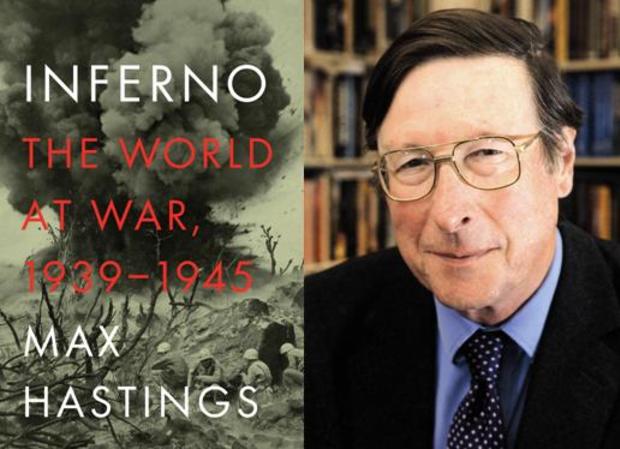"Inferno: The World at War, 1939-1945" by Max Hastings
Jeff Glor talks to Max Hastings about, "The Inferno: The World at War, 1939-1945."
Jeff Glor: What inspired you to write the book?
Max Hastings: I've written eight books about WWII which were mostly about how it looked from the top down- about the big men, the warlords and commanders. I wanted to write one now from the bottom up, to answer the question: 'pa or grandpa- what was the war like ? The answer, of course, was that it felt very different for an American tank crew or a Chinese peasant, an Ohio housewife or a British submarine commander, a Russian cavalryman or German SS panzer officer, a Polish Jew or Italian partisan. I have tried to describe something of the experiences of all those people and many more. There are deliberately no photos in the text of national leaders or commanders- only of men, women and children of the warring nations. Although my narrative sets personal experiences in the 'big picture', this is above all the little people's story.
MH: Some of the numbers amaze even me, after 35 years studying this period: the fact that over 90% of all German soldiers killed died on the Eastern Front; that the US and UK suffered only 2% of all allied military casualties, while the Russians took 65%, the Chinese 23%, the Yugoslavs 3%. The Russian campaign dominated the war against Hitler. After the ease with which he beat the French and British in 1940, it never occurred to him that beating a more primitive society, inured to suffering, might be much harder.
I am also fascinated by the huge part food, or lack of it, played in determining different nations' experience of the war. The British complained relentlessly about the monotony of rations, and American housewives moaned about being unable to buy steak. But in Bengal under British rule a million people died in the 1943-44 famine when fathers sold their own daughters, while in beseiged Leningrad 800,000 people perished, most of starvation, and some ate each other. Cannibalism became a horribly familiar phenomenon.
MH: Probably holding out a begging bowl in the street: writing is the only thing I know how to do.
MH: About ten books at once, which is my usual: a lot of 19th century fiction for pleasure, headed by Anthony Trollope; Jonathan Franzen's Freedom; the 17th century diary of Samuel Pepys; and a mass of books about World War I.
MH: 1914, for the approaching centenary. I'm already immersed, with the help of my researchers, in Serb account and Austro-Hungarian memoirs, Russian diaries and French correspondence. After so long working on World War II, I I feel Inferno completes my personal cycle on that conflict, and its hugely exciting to be exploring big new themes.
For more on "Inferno," visit the Random House website.

